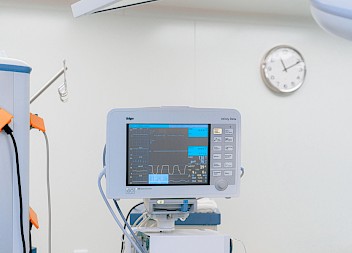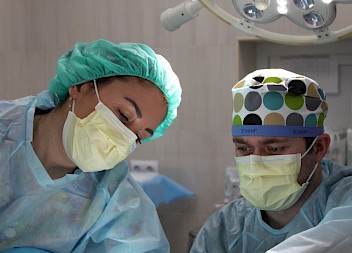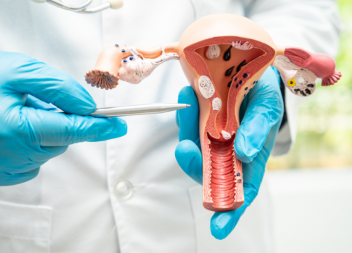A woman in her 20s was awarded £22,500 compensation after delayed surgical treatment for a huge torted ovarian cyst, resulting in the removal of an ovary and fallopian tube.
There was also a failure to secure informed consent for the surgery by the gynaecology surgical team. The woman was 21 at the time and a final year university student.
The invasive midline laparotomy resulted in a lengthier and more painful recovery, which affected her studies, and left her with more prominent scarring, permanent loss of sensation in the midline scar and also at increased risk of adhesions, chronic pelvic pain and incisional hernias.
She sought the help of specialist medical lawyer, Matthew Brown, to bring a medical negligence claim against the defendant NHS Trust.
Case summary
In February 2015, the claimant ‘C’ called 111 at 10:45am with concerns about vomiting, diarrhoea and severe abdominal pain. She was advised to contact her GP within two hours and to take pain killers.
However, the pain worsened and C called an ambulance an hour later where she was taken to the Emergency Department just after midday. She was reviewed by a doctor at 1:30pm who requested a surgical opinion. It was suspected that C either had appendicitis or a ruptured ovarian cyst. An ultrasound scan on her abdomen/pelvis confirmed that it was a large right ovarian cyst.
She was then transferred to another hospital for treatment, but this didn’t take place until 7:00pm the following day – more than 36 hours after she arrived at the Emergency Department. She was then not seen by a registrar until 4:30am, another nine hours later. It was another five hours before she was reviewed by the gynaecology team who booked C in for theatre that same day.
A lead clinician and gynae-oncology surgeon both completed the surgery consent form which C signed. However, there was no discussion about alternative surgical approaches, including draining the cyst prior to removal through a smaller incision, and no explanation as to why the more invasive midline approach was recommended.
During surgery, a torted haemorrhagic ovarian cyst was found, measuring 20 x 15 x 10cm. Torsion is where cysts twist around ligaments around the ovaries, blocking blood flow to the ovary. Both the right ovary and fallopian tube were removed along with the cyst.
C was discharged two days later but had a slow and prolonged recovery at home. She had significantly reduced mobility due to the surgical scar and loss of sensation around it. She was in pain for several weeks and developed an infection. C was unable to return to normal activities, which disrupted the final year of her degree. She was also not told for a considerable period of time that the cyst was benign.
Litigation
A Letter of Notification was sent to the Defendant in September 2016 followed by a Letter of Claim the following August.
The Defendant NHS Trust denied all allegations of breach of duty and causation in their response and proceedings were issued. They continued to deny all allegations of liability and causation.
The claim settled in June 2020 for £22,500.









